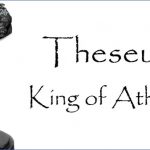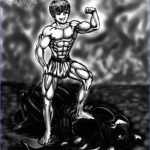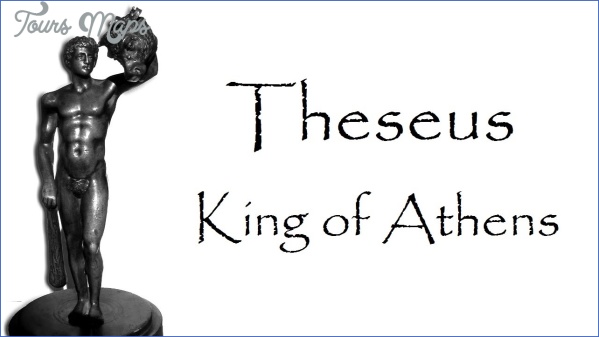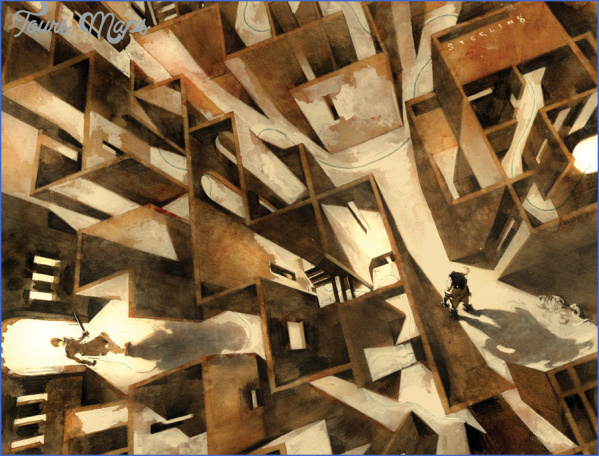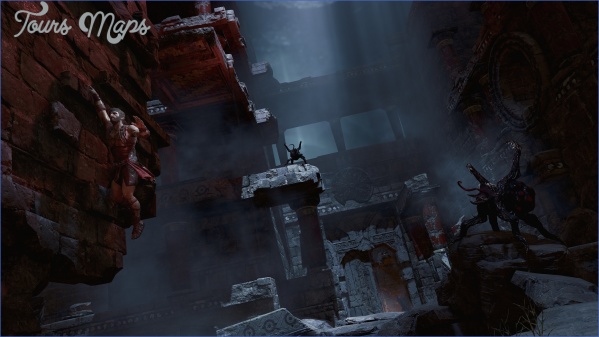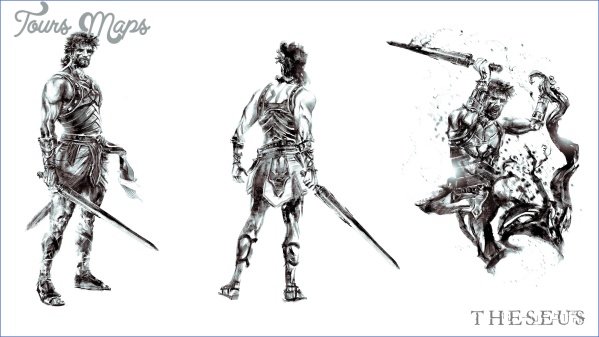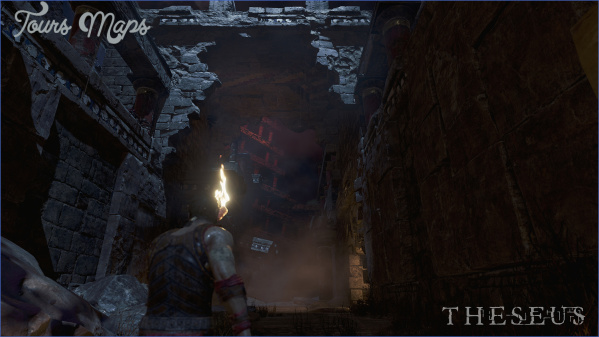Theseus’ closest friend, Peirithous, who fought with him against the Amazons, played a prominent role in another incident, which seared itself into Athens’ psyche and was depicted on the Parthenon: the battle between the Lapiths and Centaurs at Iolcus. As king of the Lapiths, whose territory bordered northern Attica, Peirithous had once been Theseus’ enemy – they first met when Peirithous raided Theseus’ cattle herds at Marathon. But each was so impressed with the other that they swore an oath of undying friendship. Thus Theseus attended Peirithous’ wedding, and when the drunken Centaurs tried to rape the Lapith women, they fought side-by-side against them
Theseus & Peirithous Photo Gallery
They shared in less savoury adventures, too, which led to their undoing. Both lusted after Helen, princess of Sparta, when she was still a child. Finding her by the River Eurotas making offerings at the shrine of Artemis Orthia, they snatched her up and galloped back to Attica, where they cast lots to see which should have her. Theseus won, hid her in the village of Aphidnae in northeast Attica, and set his mother Aethra to guard her.
But Peirithous demanded that he too should have one of Zeus’ daughters. So the two friends undertook a perilous adventure: to abduct Persephone from Hades. Descending from Cape Taenarum they arrived in front of Haides’ throne, where they demanded that the god give up his wife. In response, Haides invited them to rest on a stone bench while he went off to fetch her. But the bench was the Seat of Forgetfulness, and it caused their bodies to fuse to the rock, where they were held so fast they could not move. For four years they sat, paralysed, until Heracles came to Hades to fetch Cerberus. He wrenched Theseus from the rock, tearing his flesh in the process. When he tried to free Peirithous, however, the ground shook, thunder rattled and, understanding that the gods forbade his liberation, Heracles left the Lapith to endure his fate forever.
The Death & Discovery of Theseus
In Theseus’ absence, Helen’s brothers, Castor and Polydeuces (the Dioscuri), had invaded Attica, and when they discovered her (thanks to the advice of the hero Academus, whose sacred grove became the site of Plato’s Academy) they turned their wrath on Athens. Only the diplomacy of Menestheus, a great-grandson of Erechtheus, averted disaster. He welcomed the Dioscuri, made them honorary citizens, initiated them into the Eleusinian Mysteries and sent them back to Sparta with
Helen. She took as her servant Theseus’ mother Aethra.
Back from Hades, Theseus had few allies and little power to challenge Menestheus’ authority. Instead, bowing to the inevitable, he left Athens for ever. At Scyros, the most southerly of the Sporades, King Lycomedes received him kindly. But he had murder in his heart. An ally of Menestheus, Lycomedes pushed Theseus to his death from a high cliff.
Throughout the Archaic period, Theseus languished, a minor hero, but at the Battle of Marathon in 490 bc Athenian hoplites claimed to have seen him fighting on their side. Fourteen years later the Delphic oracle ordered Athens to find and repatriate Theseus’ remains. Their general Cimon conquered Scyros and scoured the island for the hero’s grave. Where he saw an eagle tearing at the earth, he discovered a huge skeleton, buried with a bronze spearhead and sword. Amid pomp and ceremony Cimon accompanied the remains back to Athens, where he erected a temple in Theseus’ honour.
Maybe You Like Them Too
- The Voyage of the Argo Begins
- Minos, his Loves & his Family
- The Centaurs
- Athens in History & Today
- Cecrops & Erichthonius

